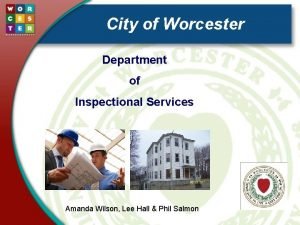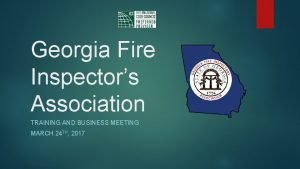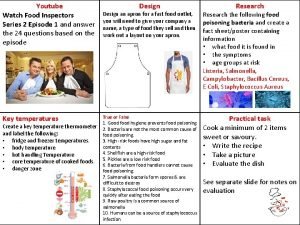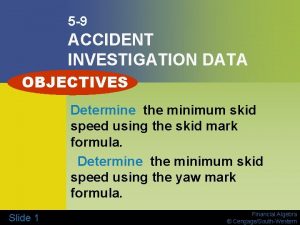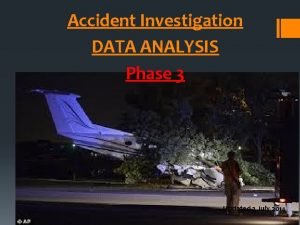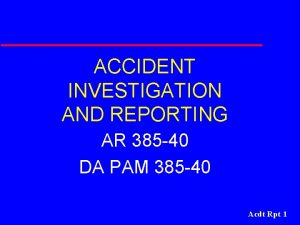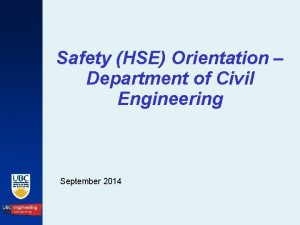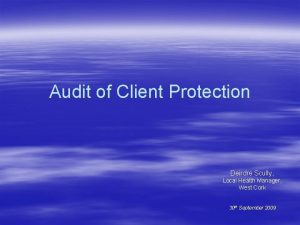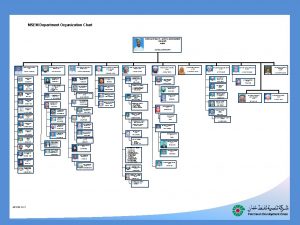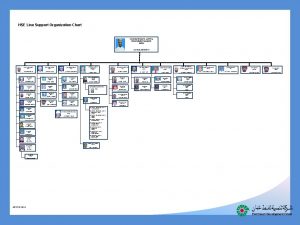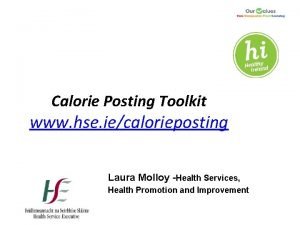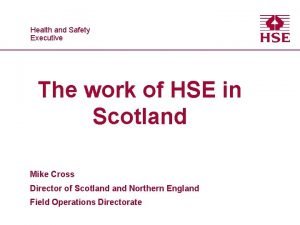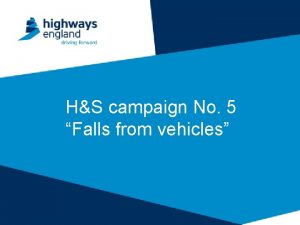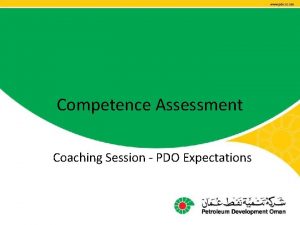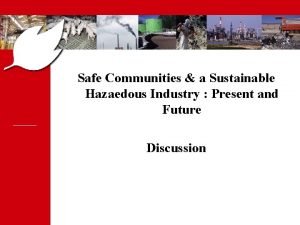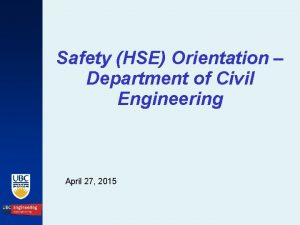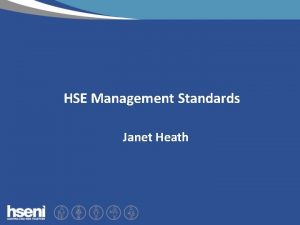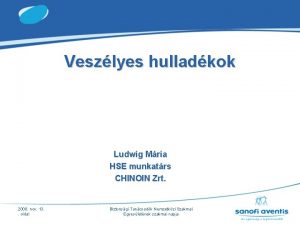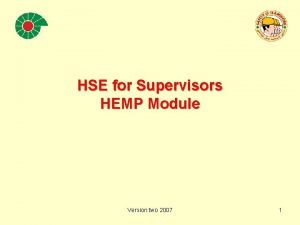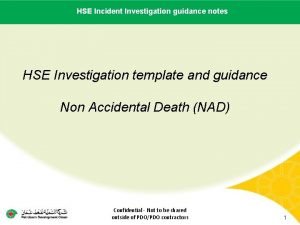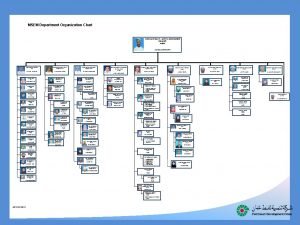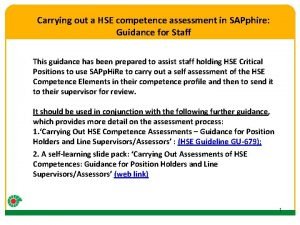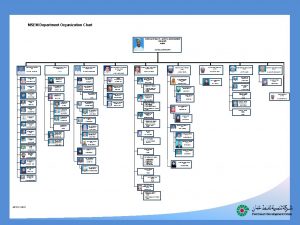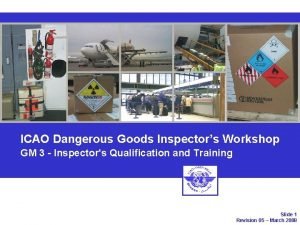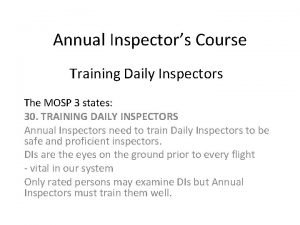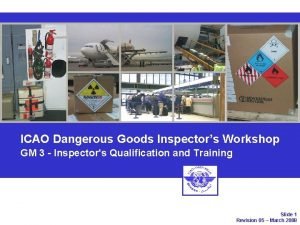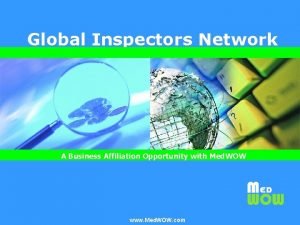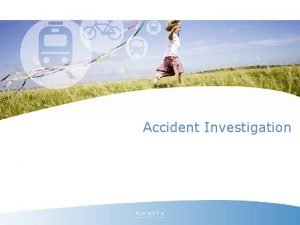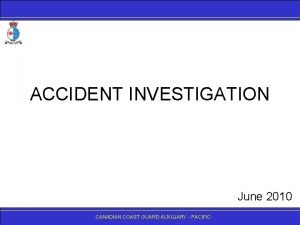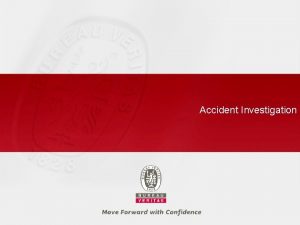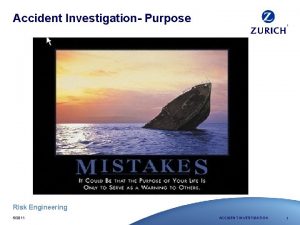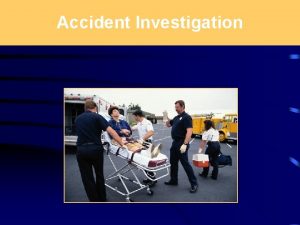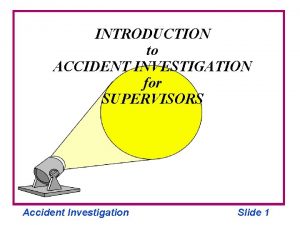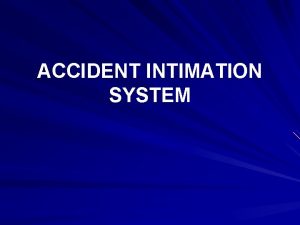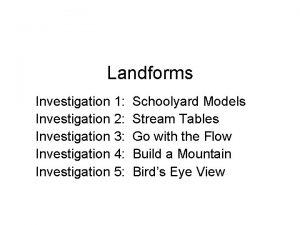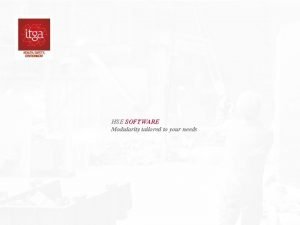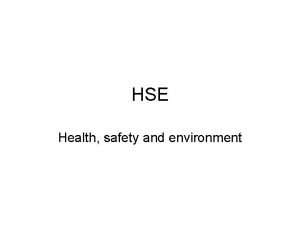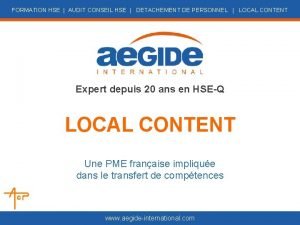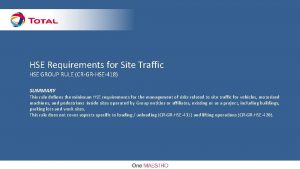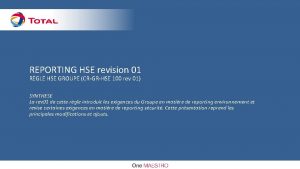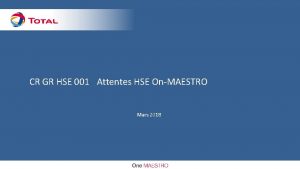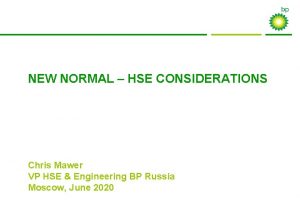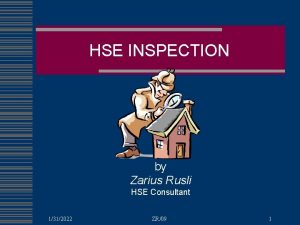Effective Accident Investigation Effective Accident Investigation HSE Inspectors



























- Slides: 27

Effective Accident Investigation

“Effective Accident Investigation” • • HSE Inspectors receive approximately 5 solid weeks of classroom training purely on investigation procedure and techniques in their first four or five years of service. Today, we have approximately 40 minutes… I hope to encourage you to think about some of the main issues to do with Investigating. Feel free to ask questions or challenge what I’m saying

Effective Accident Investigation “I keep six honest serving men; they taught me all I knew; their names are what and why and when; and how and where and who. ” – Rudyard Kipling: from “Elephant Child”

Effective Accident Investigation Six honest, serving men. Ask yourselves these questions ABOUT your accident investigation: • Why? • When? • Where? • Who? • What? • How?

WHY are YOU doing an Accident Investigation? – 1 st Honest Man Generally people are PAID to do accident investigations in order to achieve three key objectives 1) Find out what happened 2) Prevent the accident happening again 3) Report back to your employer on …

Is the reason why I’m doing an Investigation important? Yes – All “effective” accident investigations will split the “find-out-what-happened” objective in to two DISTINCT phases 1. Information gathering/Evidence collection 2. Analysis The “Report-back-to-your-employer” objective can affect how you do the information gathering and the analysis - prejudice!

Prejudice • • Prejudice will potentially affect your information gathering and your analysis. This could stop you from preventing a reoccurrence of the accident. “…as soon as possible in the investigation procedure determine the root cause of the accident – this will maximize the efficiency of the investigation…” – extract from a large nationwide employer’s investigation policy – not good!

“Find-out-what-happened” When, Where and Who? • When should I investigate? – Mandatory • • Investigation? Quality of evidence. ASAP? Stop dangerous practice. Where should I investigate? – Safe area? Potential Trauma? Preservation of Evidence? Who should investigate? – Training? Expertise? Prejudice? Experience?

“Find-out-what-happened” When?

“Find-out-what-happened” Where?

“Find-out-what-happened” Who?

“Find-out-what-happened” – WHAT? Structure – 5 th Honest Man • What am I trying to find out? – Needs a • • • structured approach! For example: HSG 65 Appendix 5 A twelve stage approach to accident investigation. Very thorough Might not be appropriate to your investigation Good starting point/Aide Memoir

“Find-out-what-happened” – What? Structure – Fit for purpose? • HASAW Act 1974 Section 2(1) • Safe Place of Work • Safe Plant and Equipment • Safe Systems of Work: • Information • Instruction • Training • Supervision

“Find-out-what-happened” – WHAT? Information / Facts / Evidence • Information is defined as facts about a situation, person or event • A Fact is something that is known to have happened or to exist. • Evidence is one or more reasons for believing that something is true or not true • Admissible evidence… No opinion, No hearsay, no rumour.

“Find-out-what-happened” - HOW? 6 th Honest Man • • • How should I gather information? Physical evidence and analysis – specialist/expert witness Documentary evidence – procedure Video / CCTV recordings – “video time” Measurements, sketches, photographs – experience Verbal evidence – Statements – training & experience needed (question sets? )

“Find-out-what-happened” Verbal Evidence - Statements • Who do you take statements from? • Question sets? • Witnesses who have spoken to other • • witnesses or managers – false memory syndrome. Stress/Duress – quality of evidence Fit for purpose

“Find-out-what-happened” Verbal Evidence – Not easy!. • “…you did have your headlights on when you hit him, didn’t you? . . . ” • Leading questions. False Memory Syndrome • Any better suggestions? • Funnelling

“Find-out-what-happened” Verbal Statements - Funnelling • • TED - “Tell me…Explain…Describe” “Tell me about your journey to work…” • Open Questions – 6 Honest Men • Closed Questions – yes/no • “when do you use your headlights? ” • “So on that morning, because it was raining you had your headlights on? ”

“Find-out-what-happened” Analysis - Schedule of Facts • What information/facts/evidence do you • • have? Where did it come from and how reliable is it? “Miss Scarlet was in the library” – Confirmed by Professor Plum and Colonel Mustard. Have you pursued all reasonable lines of enquiry?

“Find-out-what-happened” ANALYSIS – ECFA, Fault Tree, etc • • • What are “all reasonable lines of enquiry” Event and Causal Factor Analysis: - (Events, Conditions, Queries) e. g. Finger Amputation in a vertical spindle moulder. Event – Finger comes in to contact with moving blade. What conditions are necessary for this to occur?

“Stop it happening again” • • • If your “find-out-what-happened” objective has been effectively met then you will probably already have instigated measures to stop the accident happening again. It is still important to stop at this point and ask yourself the question “could this happen again? ” There can be some of this involved in the report

“Stop it happening again” Remedial Actions – Report Part 3 • Accident reports should be in at least • • • two parts (see next slide). YOUR accident reports may well be in three parts (or more) Part 3 – Remedial Actions to prevent a reoccurrence of this accident and address any underlying failings in hardware or software. Ownership, Timescales, Circulation

“Report-to-your-employer” Report – Part 1 • Factual - Present the evidence that you have collected – no conclusions, no opinion. E. g. “…the guard was not in place at the time of the accident…”

“Report-to-your-employer” Report – Part 2 • Analysis – Present reasoned arguments, • with justification, for what you believe happened. E. g. “The machine was properly guarded until the injured person removed the front guard to clear a blockage…three witnesses remember seeing the IP taking the guard off on that morning…”

“Report-to-your-employer” Feedback and Critique • It is important that your reports and • indeed your investigations are reviewed by somebody not directly involved with the investigation. Investigation technique is something that is learnt over a long period of time, there will always be things that you could have done better

Effective Accident Investigation Fit for Purpose • You had (hopefully) three objectives in • • • doing this investigation. You should have set yourself three targets at the beginning. Have you achieved those targets? Are there any remaining lines of inquiry?

Any Questions?
 Hse accident reporting flow chart
Hse accident reporting flow chart Worcester plumbing inspector
Worcester plumbing inspector Georgia fire inspectors association
Georgia fire inspectors association Punjab pure food regulations 2020 pdf
Punjab pure food regulations 2020 pdf Food inspectors youtube
Food inspectors youtube 5-9 accident investigation data answers
5-9 accident investigation data answers Accident investigation data analysis
Accident investigation data analysis Ar 385-40 accident reporting and records
Ar 385-40 accident reporting and records Hse orientation
Hse orientation Deirdre scully
Deirdre scully Mse org chart
Mse org chart Hseline
Hseline Hse toolkit
Hse toolkit Hse
Hse Hse slips trips and falls video
Hse slips trips and falls video Pdo self assessment
Pdo self assessment Hse goal
Hse goal Hse alarp
Hse alarp Hse in civil engineering
Hse in civil engineering Stress management standards
Stress management standards Slidetodoc.com
Slidetodoc.com Hemp hse
Hemp hse Lti hse
Lti hse Safety department organization chart
Safety department organization chart Hse competency assessment
Hse competency assessment Maximo oil
Maximo oil Hse advisor adalah
Hse advisor adalah Ibm maximo incident management
Ibm maximo incident management

